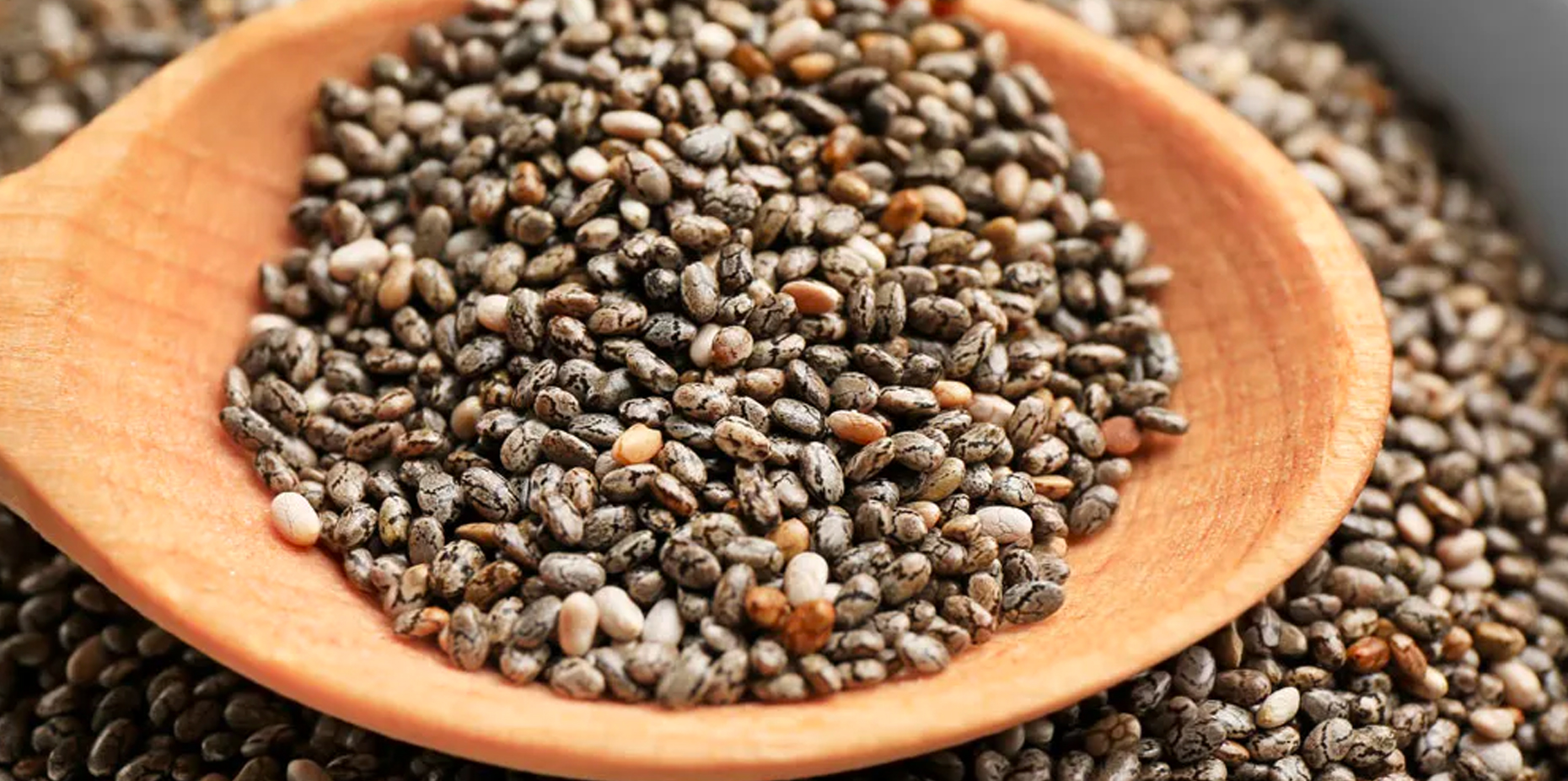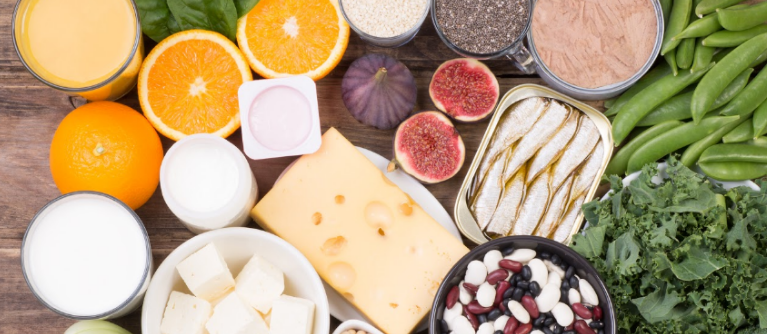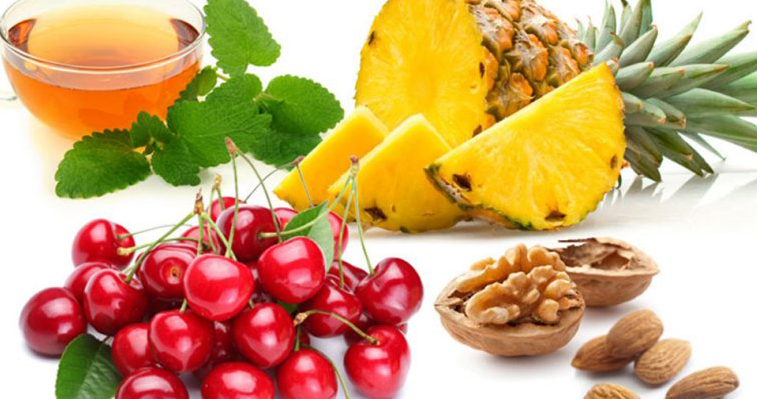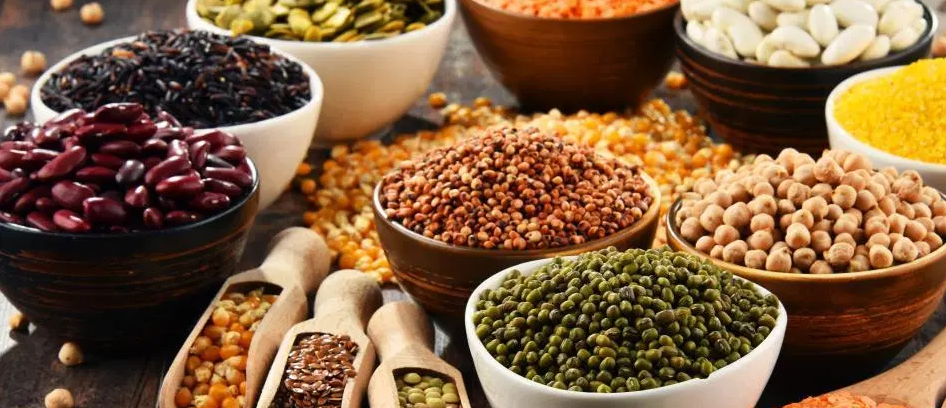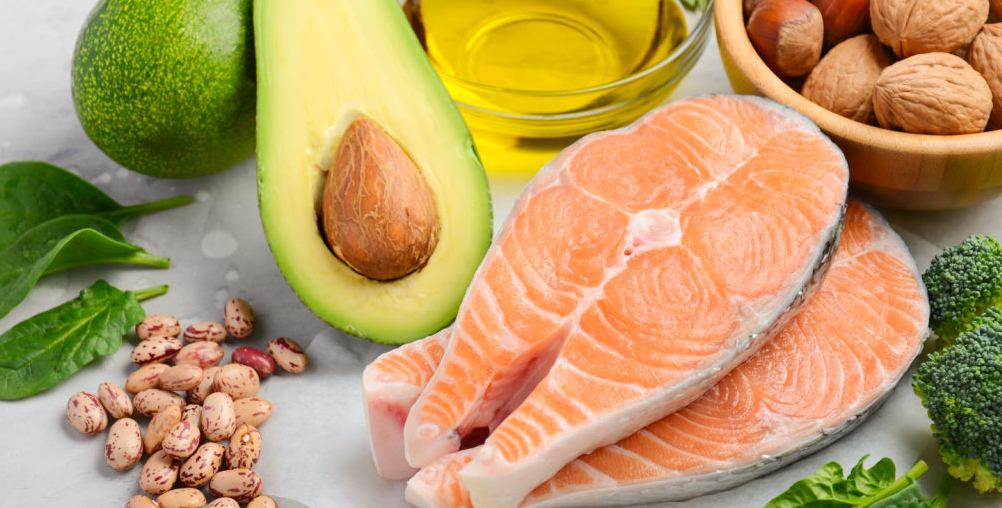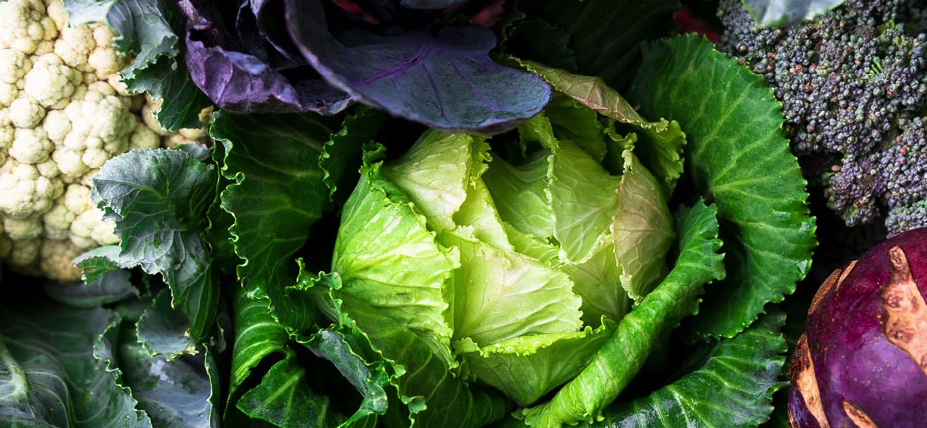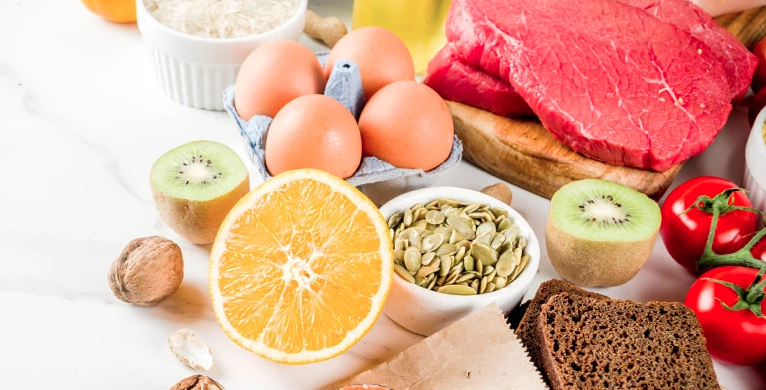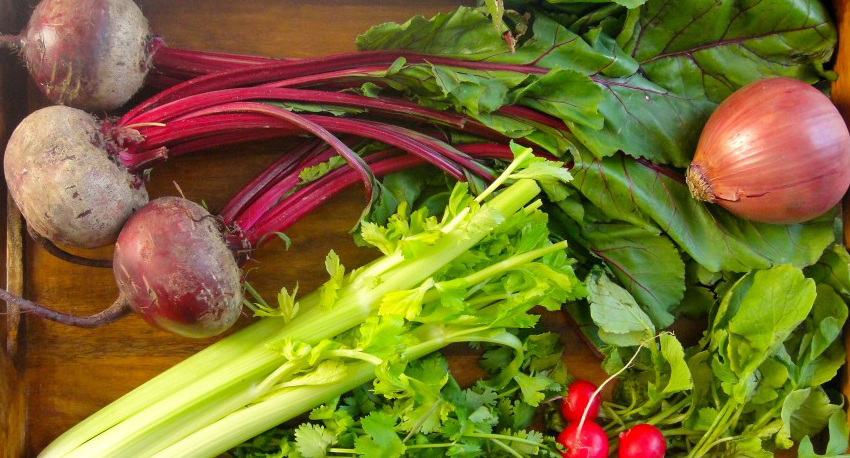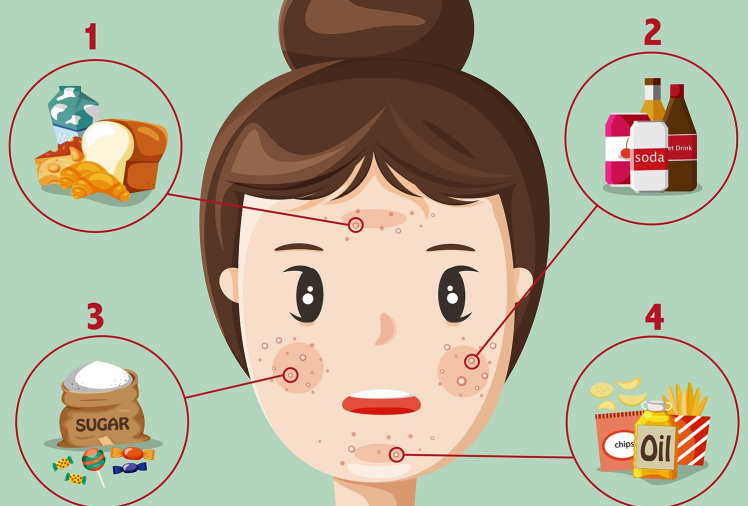Are you having a hard time getting to the bathroom lately? You should poop at least once a day for optimal health (7). If you feel like you usually do not get that these foods can help.
There are many types of foods that can help you poop better, more frequently, and with ease. But it is important to understand that constipation or irregular bowel movements are common and not only driven by the food we eat or do not eat (8).
Many factors can contribute to constipation or simply not being about to go to the bathroom as much as you would like to. These factors can include chronic stress (1), lack of exercise, medication use, dehydration, (2), and much more (8), (9).
Although all these factors can contribute to irregular bowel movements, food is a major contributor. And that goes for the foods that may be causing constipation in the first place. The most common culprits of this include refined carbohydrates, excess sugar, and processed foods (3), (10). Foods with fiber, probiotics, prebiotics, and many nutrients are the best option for a healthy lifestyle (10).
Tip: Consume enough fiber, eat a balanced diet, drink plenty of water, be physically active, and manage stress to help relieve constipation. If you struggle with constipation even with these factors, talk to your doctor. Medications and other gastrointestinal disorders can cause constipation.
Table of Contents
Foods that Help You Poop
Do you think you get enough healthy fiber into your diet? Find out what foods can help you poop by checking out the list below.
1. Figs
Figs are full of beneficial dietary fiber, making them a powerful fruit of choice for those who may be experiencing constipation. Figs are a part of the mulberry fruit family, and they are especially high in soluble fiber (11), (12).
The best part about figs is they are the easiest fruit to eat on the fly, at your desk, at home, or on the run. That is because the most common way to eat figs is dry. They are naturally sweet and moist inside.
The reason figs can be so helpful with helping you poop is that they are so high in soluble fiber (13). See how you can start adding some nutritious figs to your diet today. Notice how you feel after eating them, and spot the difference in your health, that you will likely see shortly after eating them.
Tip: Figs are very high in soluble fiber. Add dried figs to trail mix or oatmeal, eat fresh figs as a snack, or grill fresh figs as a tasty side to your main meal.
2. Chia Seeds
Chia seeds are an excellent source of insoluble fiber, so they can be great for regular bowel movements as well (14).
Insoluble and soluble fiber is necessary for adequate digestion and health (15). They are also high in plant-based omega 3 fatty acids, which helps promote anti-inflammatory properties throughout the body (14). Chia seeds are an ancient grain that is also full of important antioxidants like quercetin, which can have anti-carcinogenic and anti-aging effects (4).
See if you can add some chia seeds to your next bowl of cereal, oatmeal, smoothie, or even your next dessert for a nutritious boost. Keep in mind that chia seeds can significantly lower blood pressure so if you suffer from low blood pressure, it is best to skip this powerful seed (16).
Tip: Easily add chia seeds to oatmeal, cereal, smoothies, or desserts. Or, make chia pudding by combining 3-4 tablespoons of chia seeds, 1 cup milk of choice, 1 tsp maple syrup, and a dash of cinnamon, then let sit a few hours to make a pudding consistency.
3. Apples
Just one medium apple contains over 4 grams of fiber. Eating an apple, a day can not only help your overall health, but it can keep you from needing a laxative, too (8), (17).
Apples are rich in many essential nutrients beyond fiber as well. When you eat apples regularly, you are getting a healthy dose of vitamin C and polyphenols (5). You are also getting many prebiotic fibers, which are especially important to promote better digestion (18).
Between green, red, and every type of sweet or tart apple you can imagine, there is no shortage of apples to add to your diet. All of them provide the fiber you need for healthy bowel movements.
Tip: Apples are easy to add to any dish. Add chopped apples to oatmeal with walnuts, slice thinly and incorporate into a salad with feta cheese, or even incorporate into savory dishes. Apples pair especially well with pork and onions.
4. Dark Leafy Greens
There are so many dark leafy greens that can help to relieve constipation and help you poop more often (8). That is because these foods are some of the healthiest on the planet.
Full of fiber, essential minerals and vitamins, and antioxidants, you cannot go wrong with adding more dark leafy greens to your diet, especially if you rarely get them, to begin with (19). It is extremely rare to get too many leafy greens in your diet. The only way you can do that is if you are juicing heavily or eating far too much at each meal.
Add some more dark leafy greens like collard greens, bok choy, kale, spinach, dandelion greens, and arugula to your diet to make sure you get adequate amounts of fiber, vitamin K, vitamin C, antioxidants, and much more.
Tip: Mix up the greens in your salad using kale, arugula, or swiss chard, toss some bok choy into a stir-fry, blend up spinach or collard greens into a smoothie, or simply sauté a mix of greens with olive oil, garlic, salt and pepper for an easy side dish.
5. Wheat Bran
Wheat bran is full of many plant compounds, and it is an excellent source of natural insoluble fiber. Many wheat products are stripped of its nutrition, and then later fortified with nutrition. Wheat bran is the exception. It is one of the richest forms of insoluble fiber out there (20).
This grain can be so helpful for digestion, it can even lower the risk of colon and breast cancer (6). Healthy digestion is necessary to prevent many chronic diseases from showing up in the body.
Wheat bran typically has a nutty flavor that goes well on many meals. You can easily add it to many breakfast dishes, desserts, or even just your typical smoothie.
Tip: Fiber-rich wheat bran is easy to mix into pancakes, oatmeal, yogurt, muffins, or smoothies.
6. Prunes
Prunes are a rich source of many essential vitamins and minerals like vitamin A, K, B2, B3, and more. They are also a rich source of fiber. One prune contains about 2 grams of fiber per serving (21), (22).
These are not always the most popular choice among the vast majority due to their concentrated sweetness. Drinking prune juice is another easy way to get this healthy fiber-rich fruit into your diet (23).
You can easily water down prune juice to accommodate your taste buds, and you can even adjust how much you need depending on your health that day. See if adding prunes or prune juice to your diet helps you relieve your constipation.
Tip: Prunes are very fiber-rich and can be easily consumed dried, fresh, or in juice form. Check the labels on prune juice and avoid too much added sugar. You can also water down prune juice to reduce the sugar content.
7. Beans
Beans are some of the richest forms of insoluble and soluble fiber around. Many types of beans are great for constipation and smoother bowel movements for that reason (24).
From kidney beans to black, pinto, navy, baked, and more, beans are one of the most versatile food around, too. If you buy your beans in a can, be sure to check that the sodium is not too high and there are no extra, harmful ingredients like high fructose corn syrup. The healthiest option is dried beans, although there are some canned beans that are OK to eat as well.
Make sure to soak dried beans overnight or for a few hours before cooking to remove as many lectins as possible. Beans are typically high in lectins, which can promote bloating, and gas along with bowel relief (25).
Tip: Beans are perfect to incorporate into chilis, soups, and stews. Mash up your favorite beans with minced garlic, salt, and pepper for a filling bean dip snack. If you struggle with constipation, eat a plant-powered meal every week starring beans as the protein.
8. Many Vegetables
A rich variety of vegetables can help you poop more, with an especially high focus on artichokes. Vegetables are high in dietary fiber, making them helpful to relieve constipation (26).
Only one medium artichoke contains a whopping 7 grams of dietary fiber. These small vegetables are an excellent way to sneak more fiber in your diet, especially if you are a picky eater. Artichokes are often in an olive oil soak, and ready to easily be added to salads and much more (27).
Other vegetables that are high in fiber include parsnips, broccoli, carrots, along with the dark leafy greens from above (26).
Tip: Fill up on vegetables if you struggle with constipation. Aim for 2-3 cups each day. Add broccoli to breakfast scrambles, snack on carrot sticks, or top your pizza with artichokes and spinach.
9. Lentils
Lentils are one of the few plant-based sources of protein that are rich in all nine essential amino acids, like meat. This along with their high fiber content makes them an excellent choice if you need to use the bathroom more (28).
They are high in many strong antioxidants, minerals, and essential vitamins as well. Adding some lentils to your diet instead of meat occasionally can be great for your overall digestion and health (28).
There are plenty of healthy recipes you can make with lentils as a base protein, too. Simply swap out your protein for lentils and use the same ingredients.
Tip: Add plant-powered lentils into soups, chili, or stews. Toss together a simple soup by adding your favorite vegetables, canned diced tomatoes, vegetable stock, minced garlic, and lentils to a large pot. Boil for about 20 minutes until lentils are cooked through.
10. Kiwi
Kiwis may be a small fruit, but they pack a powerful punch of fiber. Only one small kiwi has just over 2 grams of fiber (29).
Contrary to what many people think, you can eat the skin of kiwi, and it contains fiber, too. The skin also includes high amounts of folate, vitamin E, and more (30).
You may find it strange to eat the skin since it tends to be prickly with fuzz. But since kiwis are so tiny and sweet, it makes more sense to eat them with the skin for better flavor and easier eating.
Tip: Kiwis make a perfect, colorful, fiber-rich snack option. Slice kiwis or pack a whole one in your lunch, or add to yogurt, oatmeal, or smoothies.
11. Nuts
Many nuts are rich in essential vitamins and minerals, along with necessary fiber. If you don’t have a nut allergy, these are some of the easiest foods to add to your diet (31).
See where you can add some nutritious nuts to your daily routine as a snack or in addition to your favorite meal.
The nuts that have the highest concentrations of fiber include almonds, peanuts, pistachios, brazil nuts, and pecans, to name a few. Add some of these to your favorite meals or have a healthy snack that is rich in fiber, selenium, healthy fats, and more (31).
Tip: Nuts are very rich in fiber, vitamins, minerals, and healthy fats. They are also easy to pack around for a quick and filling snack. You can even toss them into salads, soups, smoothies, or oatmeal.
12. Probiotic Foods
Probiotic foods like yogurt, kimchi, sauerkraut, natto, miso, and more are naturally high in probiotics, making a key food to add if you need to go to the bathroom more.
Probiotic foods are essential for better gut functioning and to improve overall health. The body needs a wide array of probiotics, prebiotics, fiber, vitamins, and nutrients to function optimally. Without regular intake of these nutrients, the body does not function normally, and that includes digestion (32), (33).
These foods can help with managing weight, and to promote a better immune response, too (34). Stay away from yogurts too high in added sugars, and instead add your own fruit to sweeten plain yogurt varieties. You can add foods like kimchi, sauerkraut, and miso to many dishes. Kimchi and natto are a typical part of Asian cuisines.
Tip: Kimchi, sauerkraut, natto, miso, and kefir are a few foods to name that are high in probiotics. Eat a serving daily to reap the health benefits of probiotics and enhance gut health.
Conclusion
There are plenty of healthy foods that can help to stimulate bowel movements, helping you poop more often. It is crucial to go to the bathroom at least once a day for regular metabolic and gastrointestinal functioning (7).
The most important part about living a healthy life is to follow a few principles. These include a healthy balanced diet, regular exercise, plenty of water, and a solid support system (8).
Factors like chronic stress, dehydration, medication usage, and more can be just as detrimental as a poor diet. And the combination of all could wreak havoc on your digestive system (9).
Tip: If you increase your fiber intake, make sure to drink plenty of water too. Eating a lot of fiber without proper hydration can worsen constipation.
Which of these foods can you start adding to your daily diet or even just once a week? Pick your top five from the list above and see if you notice improvements in your overall health, starting with how well and often you go to the bathroom.
If you suffer from chronic constipation, be sure to speak to a healthcare professional about what you can do to treat it.





